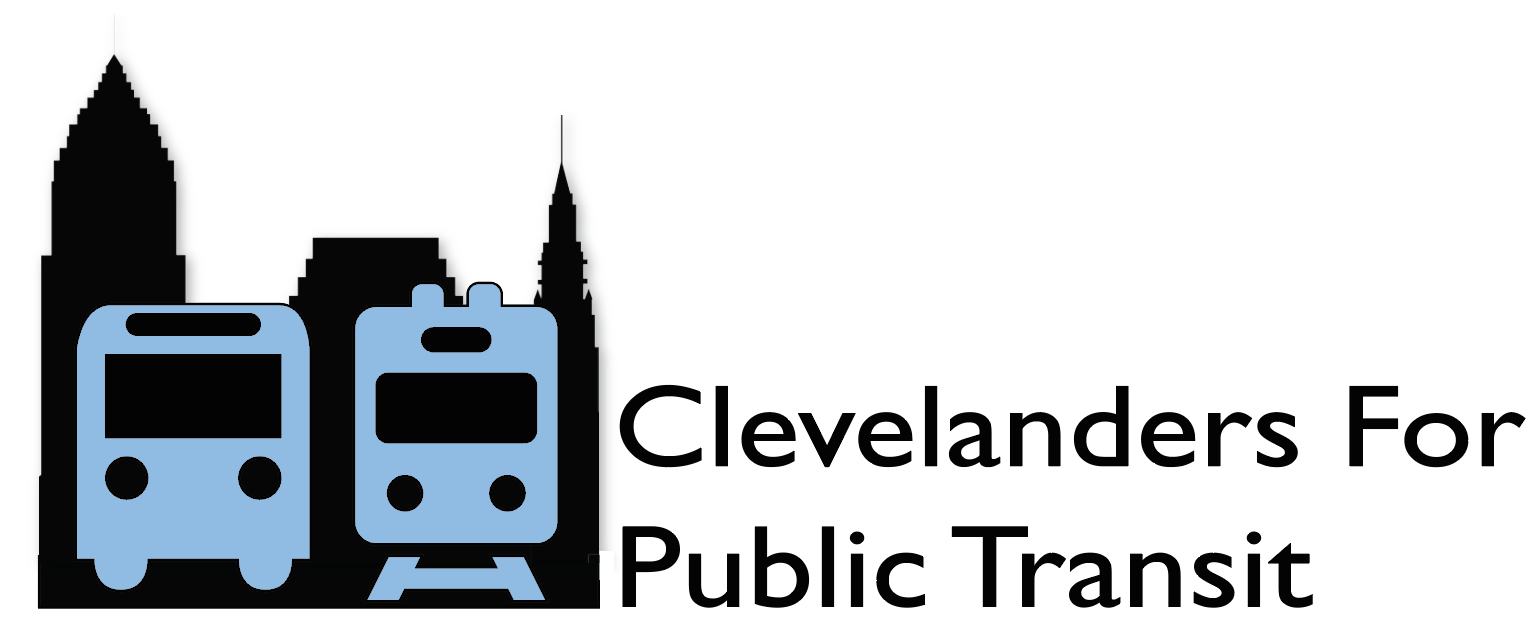RTA’s Fare Equity Study Supports “Fair Fares” Platform;
CPT Calls on RTA to Terminate Conduent Contract and Move to New Fare System
Cleveland, OH, August 20, 2019
At today’s Greater Cleveland Regional Transit Authority Board of Trustees meeting, members of Clevelanders for Public Transit will provide testimony about RTA’s fare collection system and RTA’s ongoing Fare Equity Study. The results of the Fare Equity Study support changes initially proposed last year in CPT’s Fair Fares platform that would increase value for riders and counter RTA’s ongoing death spiral of service cuts, fare increases and reduced ridership. The meeting will start with testimony from riders at 9am at RTA HQ, 1240 West 6th Street.
CPT is calling on RTA to terminate their existing smartcard contract with Conduent Transportation and to move forward with a next-generation fare collection system capable of fare-capping.
At RTA’s August Committee Meetings, board members Dr. Valarie McCall and Justin Bibb raised concerns about the Fare Equity Study and RTA’s outdated fare payment system, including a contract that has failed to deliver a smartcard platform for nearly a decade.
“For years, peer cities like Milwaulkee and Pittsburgh have had smartcards,” CPT Coordinating Committee Member Chris Stocking said. “Now smartcard systems in places like Indianapolis and Columbus are implementing fare-capping. It is time for RTA to join the 21st century, or ridership will continue to decline.”
The interim results of the Fare Equity Study presented at RTA’s Committee Meetings earlier this month validate what RTA riders have known for years: many RTA riders are overpaying for fares.
Key issues identified in the Fare Equity Study include the excessive cost of transferring and a low percentage of frequent riders who purchase monthly passes. Although monthly passes offer the lowest cost for frequent riders, many riders instead buy day passes or weekly passes that have lower upfront costs, but cost significantly more over time. According to the study, low-income and minority riders are overpaying for fares at a greater rate than other riders.
CPT is pleased that the study recommends changes initially proposed last year in CPT’s Fair Fares platform, including:
- Restoring transfers to single-trip fares
- Reducing the price of all-day passes
- Fare-capping as part of a next-gen fare collection system
Fare-capping automatically provides a pass after riders buy enough trips to make a pass the best value. For example, a rider may pay $2.50 for their initial ride and $2.50 for the next ride. Instead of being charged $2.50 for the third ride, fare-capping would cap the cost of the third ride at the cost of an all-day pass. Instead of paying $2.50 for the next trip, the rider would pay an additional $.50 and receive unlimited rides for the rest of the day. Fares would also be capped at weekly and monthly levels, ensuring that riders always get the best value regardless of ability to pay upfront.
Fare-capping is the solution best-suited to restore equity to RTA fares. CPT calls on the RTA board to terminate their contract with Conduent and work towards a fare collection system that includes fare-capping as one element of a broader vision to win back riders, reverse the death spiral and restore public support for RTA.
